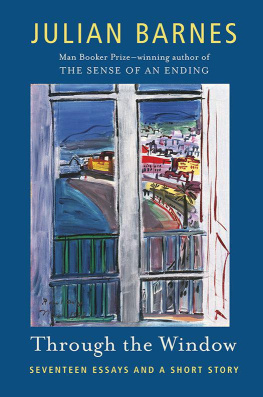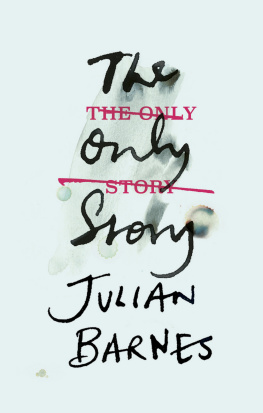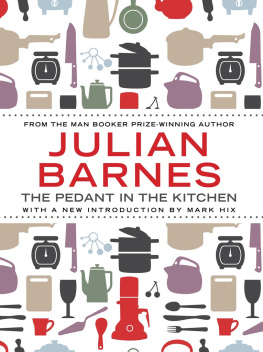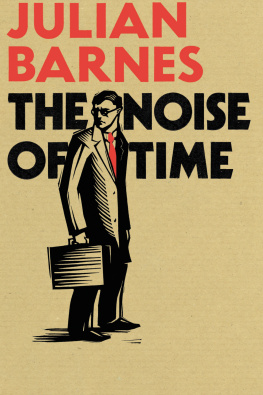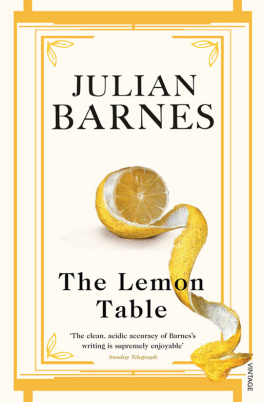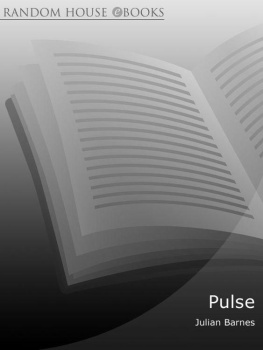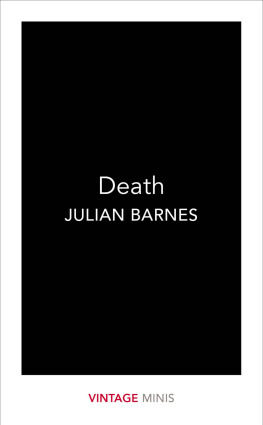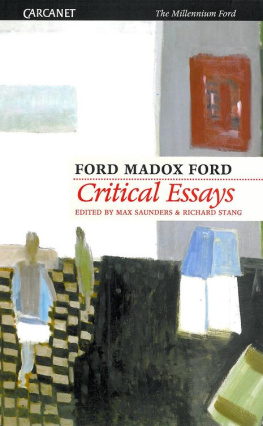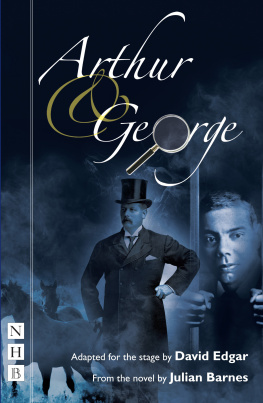Julian Barnes is the author of eleven novels, three books of short stories, and three collections of journalism. In addition to the Booker Prize, his other honors include the Somerset Maugham Award, the Geoffrey Faber Memorial Prize, and the E. M. Forster Award from the American Academy of Arts and Letters. He lives in London.
FIRST VINTAGE INTERNATIONAL EDITION, OCTOBER 2012
Copyright 2012 by Julian Barnes
All rights reserved. Published in the United States by Vintage Books, a division of Random House, Inc., New York. Originally published in Great Britain separately in paperback as Through the Window by Vintage Books UK, an imprint of the Random House Group Limited, London, in 2012, and as A Life with Books by Jonathan Cape, an imprint of the Random House Group Limited, London, in 2012.
Vintage is a registered trademark and Vintage International and colophon are trademarks of Random House, Inc.
The short story Homage to Hemingway is a work of fiction. Names, characters, places, and incidents either are the product of the authors imagination or are used fictitiously. Any resemblance to actual persons, living or dead, events, or locales is entirely coincidental.
Grateful acknowledgment is made to the following for permission to reprint previously published (and unpublished) material:
Alfred A. Knopf, a division of Random House, Inc.: Excerpt from the section The Author Observes His Birthday, 2005 from Endpoint from Endpoint and Other Poems by John Updike, copyright 2009 by The Estate of John Updike. Used by permission of Alfred A. Knopf, a division of Random House, Inc.
A. P. Watt Ltd.: Excerpts from Kiplings diaries. Used by permission of A. P. Watt Ltd. on behalf of The National Trust for Places of Historic Interest or Natural Beauty.
The Cataloging-in-Publication Data is on file at the Library of Congress.
eISBN: 978-0-345-80551-5
www.vintagebooks.com
Cover design by Megan Wilson
v3.1
FOR PAT
CONTENTS
PREFACE: A LIFE WITH BOOKS
I HAVE LIVED IN BOOKS , for books, by and with books; in recent years, I have been fortunate enough to be able to live from books. And it was through books that I first realized there were other worlds beyond my own; first imagined what it might be like to be another person; first encountered that deeply intimate bond made when a writers voice gets inside a readers head. I was perhaps lucky that for the first ten years of my life there was no competition from television; and when one finally arrived into the household, it was under the strict control of my parents. They were both schoolteachers, so respect for the book and what it contained were implicit. We didnt go to church, but we did go to the library.
My maternal grandparents were also teachers. Grandpa had a mail-order set of Dickens and a Nelsons Encyclopaedia in about twenty-five small red volumes. My parents had classier and more varied books, and in later life became members of the Folio Society. I grew up assuming that all homes contained books; that this was normal. It was normal, too, that they were valued for their usefulness: to learn from at school, to dispense and verify information, and to entertain during the holidays. My father had collections of Times Fourth Leaders; my mother might enjoy a Nancy Mitford. Their shelves also contained the leather-bound prizes my father had won at Ilkeston County School between 1921 and 1925, mostly for General Proficiency or General Excellence: The Pageant of English Prose, Goldsmiths Poetical Works, Carys Dante, Lyttons Last of the Barons, Charles Reades The Cloister and the Hearth.
None of these works excited me as a boy. I first started investigating my parents shelves (and those of my grandparents, and of my older brother) when awareness of sex dawned. Grandpas library contained little lubricity except a scene or two in John Masterss Bhowani Junction; my parents had William Orpens The Outline of Art with several important black-and-white illustrations; but my brother owned a copy of Petroniuss Satyricon, which was the hottest book by far on the home shelves. The Romans definitely led a more riotous life than the one I witnessed around me in Northwood, Middlesex. Banquets, slave girls, orgies, all sorts of stuff. I wonder if my brother noticed that after a while some of the pages of his Satyricon were almost falling from the spine. Foolishly, I assumed that all his ancient classics must have similar erotic content. I spent many a dull day with his Hesiod before concluding that this wasnt the case.
The local high street included an establishment we referred to as the bookshop. In fact, it was a fancy-goods store plus stationers with a downstairs room, about half of which was given over to books. Some of them were quite respectablePenguin classics, Penguin and Pan fiction. Part of me assumed that these were all the books that there were. I mean, I knew there were different books in the public library, and there were school books, which were again different; but in terms of the wider world of books, I assumed this tiny sample was somehow representative. Occasionally, in another suburb or town, we might visit a real bookshop, which usually turned out to be a branch of W. H. Smith.
The only variant book-source came if you won a school prize (I was at City of London School, then on Victoria Embankment next to Blackfriars Bridge). Winners were allowed to choose their own books, usually under parental supervision. But again, this was somehow a narrowing rather than a broadening exercise. You could choose them only from a selection available at a private showroom in an office block on the South Bank: a place both slightly mysterious and utterly functional. It was, I later discovered, yet another part of W. H. Smith. Here were books of weight and worthiness, the sort to be admired rather than perhaps ever read. Your school prize would have a particular value, you chose a book for up to that amount, whereupon it vanished from your sight, to reappear on Lord Mayors Prize Day, when the Lord Mayor of London, in full regalia, would personally hand it over to you. Now it would contain a pasted-in page on the front endpaper describing your achievement, while the cloth cover bore the gilt-embossed school arms. I can remember little of what I obediently chose when guided by my parents. But in 1963 I won the Mortimer English prize, and, being now seventeen, must have gone by myself to that depository of seriousness, where I found (whose slip-up could it have been?) a copy of Ulysses. I can still see the disapproving face of the Lord Mayor as his protectively gloved hand passed over to me this notoriously filthy novel.

